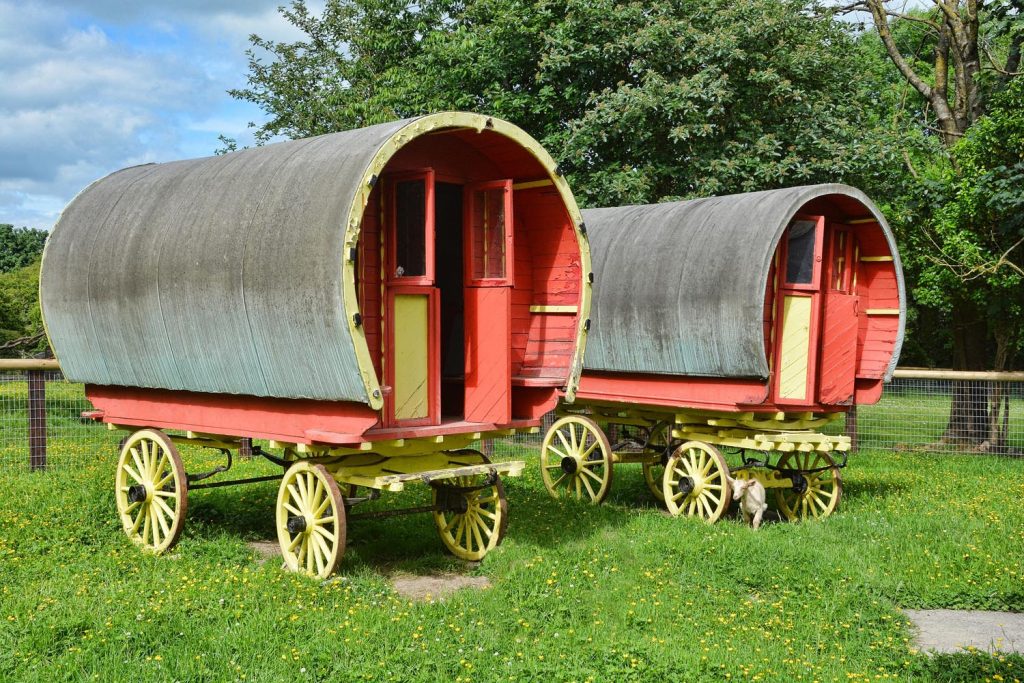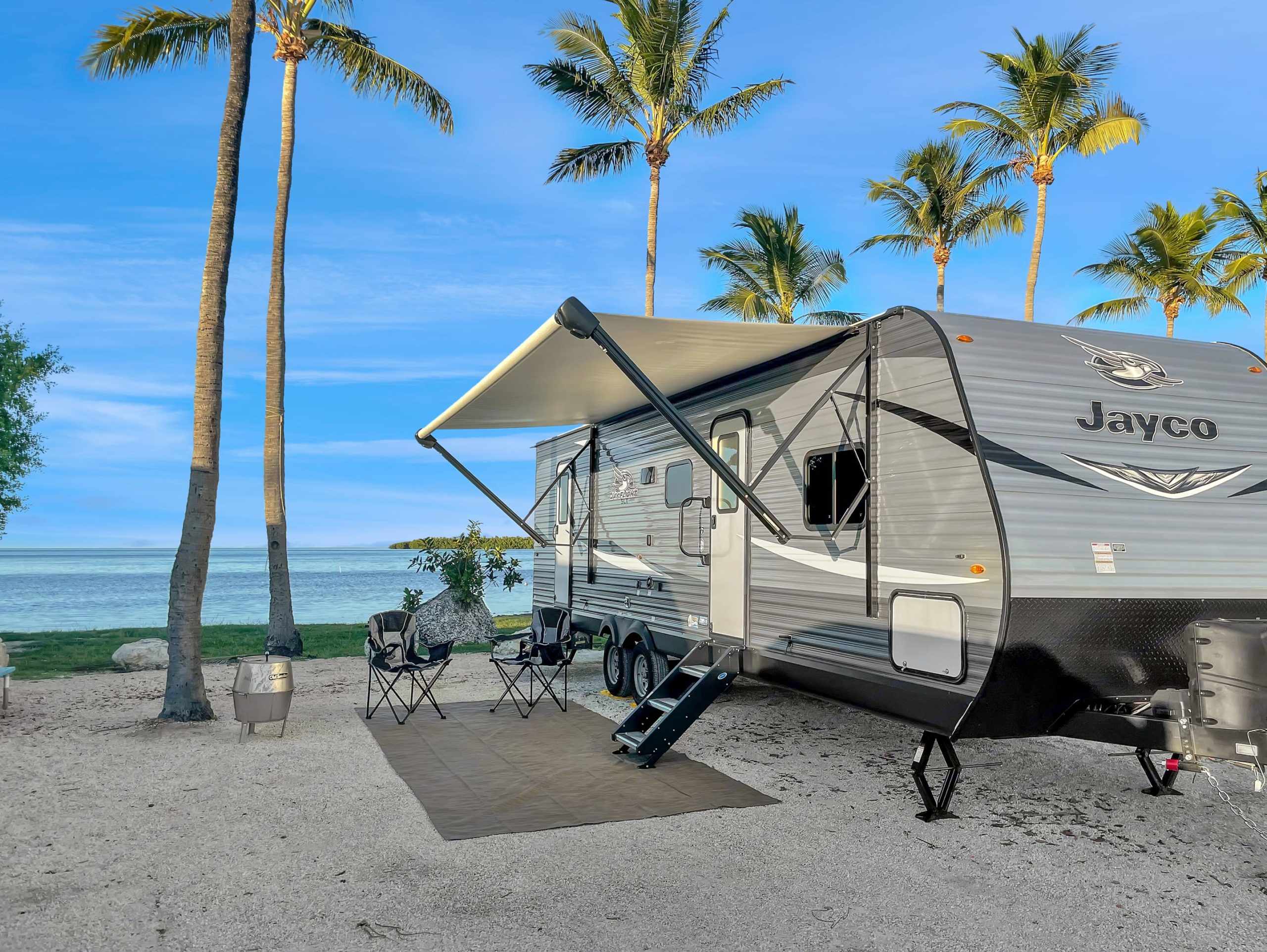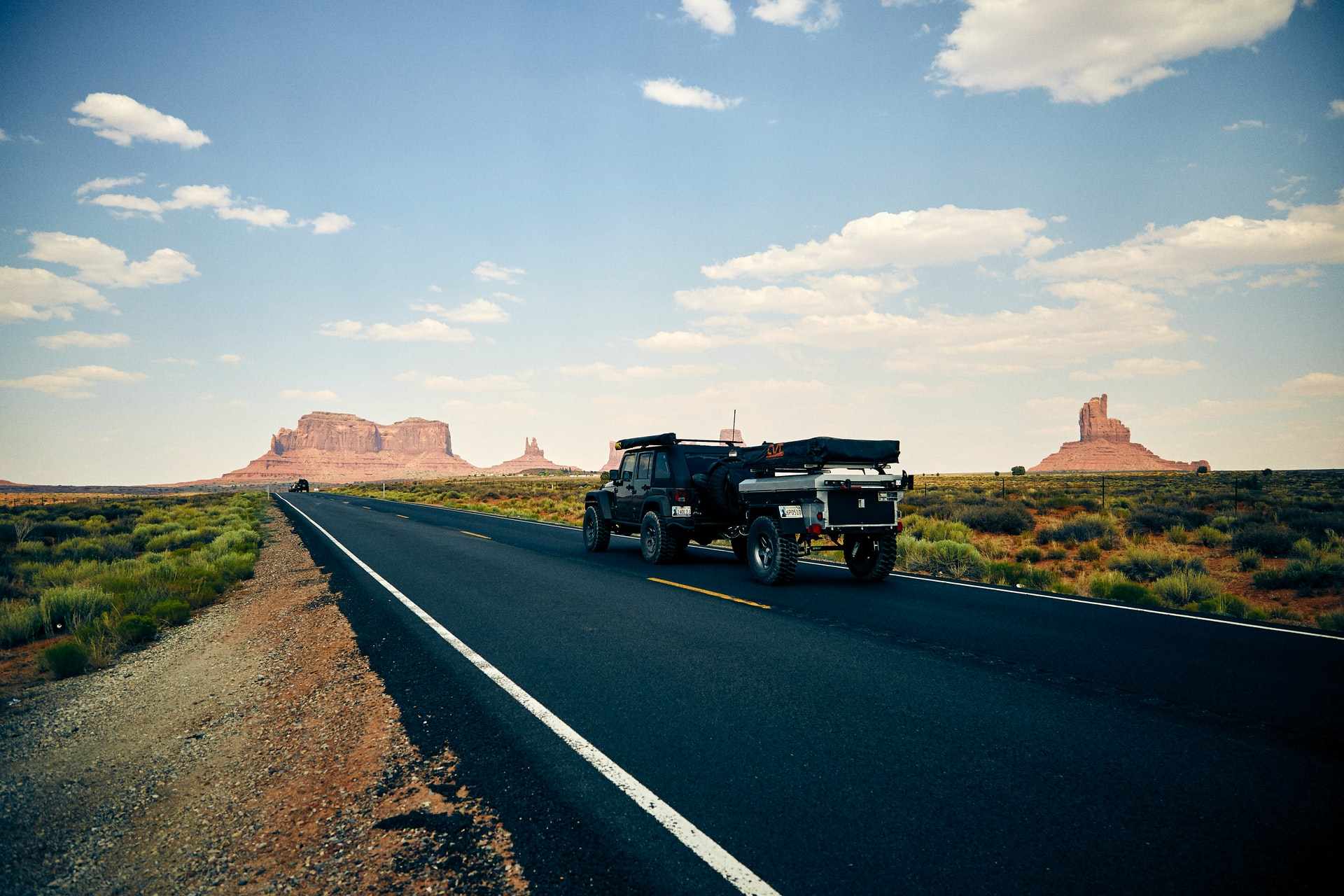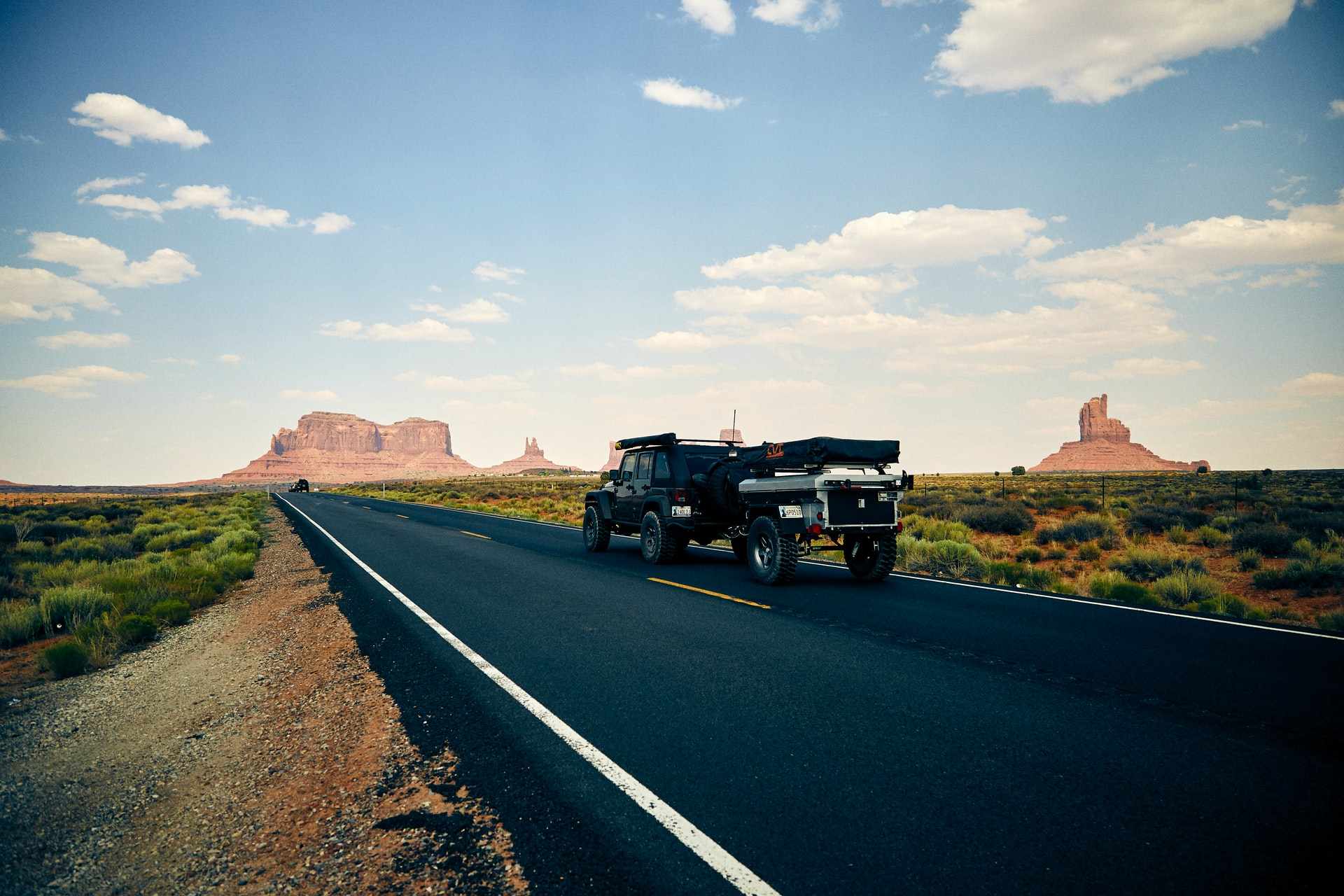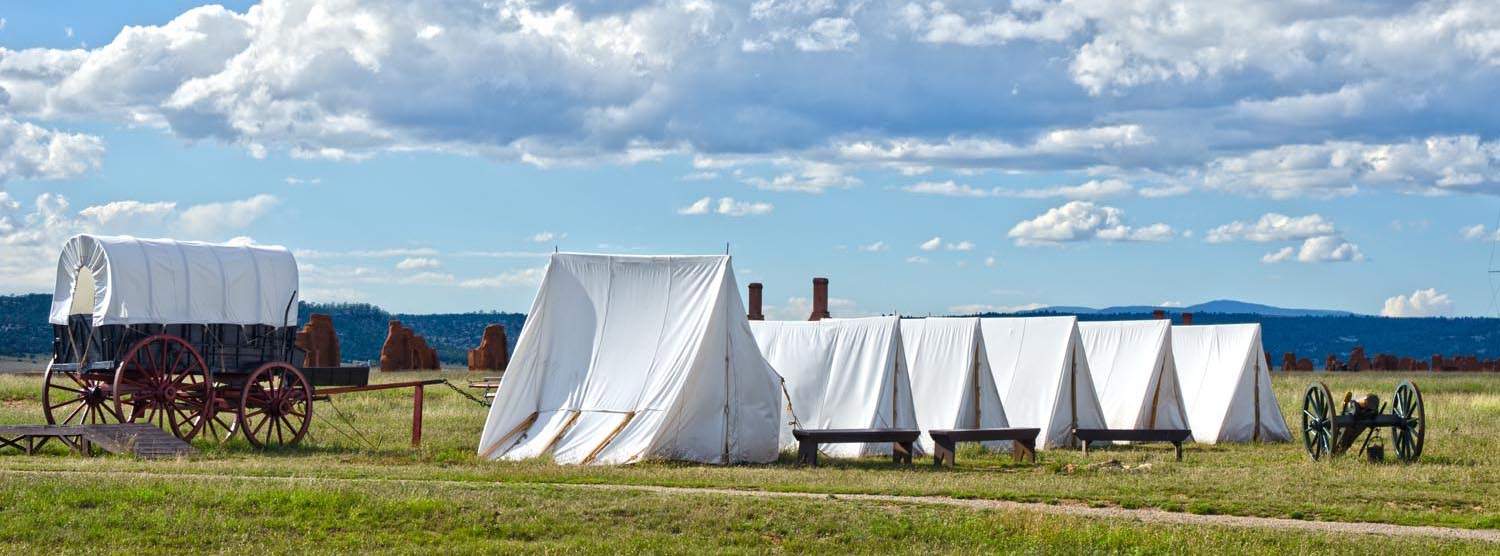Who doesn’t love adventure? I mean, most of us love hitting the road in our RVs, right? We thrive on the excitement that’s right around the next corner, and we can’t wait to ‘discover’ that spectacular location other campers have raved about on social media.
But would adventure be the proper word to describe hitting the road 150 years ago in a covered wagon along the Santa Fe Trail? Traveling through wild lands with few comforts and many fears would have been an extraordinary challenge, wouldn’t it? Well, you can find out for yourselves – follow along with me as I explore a part of the famed trail in New Mexico. We’ll see how 21st century covered wagons fair on this historical outing.
Chasing Ghosts
The arid plains of Northeastern New Mexico are a great repository for preserved history. One weekend I set off on a trip to Santa Fe, a four-hour drive from where I was currently located. I enjoy the flavor of that oldest of cities in the Southwest and visit there frequently. But this time I wanted to capture images of ghosts – not those hunted in movies, but the wisps of stories created by those who suffered the hardships across unsettled land, looking for a piece of America all their own from. This trail from Independence, Missouri to Santa Fe, New Mexico took settlers to new lands from 1822 to 1880.
Pecos National Historical Park
I headed east out of Santa Fe for my exploration, traveling up Glorieta Pass to discover not only the Santa Fe Trail, but a small leg of Route 66 and the remains of a Civil War battle. To add to my discovery, I found that I was also in the neighborhood of a historic Pueblo with an adobe church and several kivas.
The Pecos National Historical Park held an interesting mix of Anazasi culture, Spanish exploration, Catholic missionary ministry, and Santa Fe Trail history. Here I found the last vestiges of a large Pueblo community, with the fourth rendition of a crumbling Catholic church, and a vast collection of pottery housed at the National Park Headquarters. Considering this settlement had been in existence for several hundred years by the time the Santa Fe Trail became established, many trail pioneers veered slightly off the beaten path to experience this little known piece of history while they were making their own (history, that is!). There are a few signs of that trail detour very near the church.
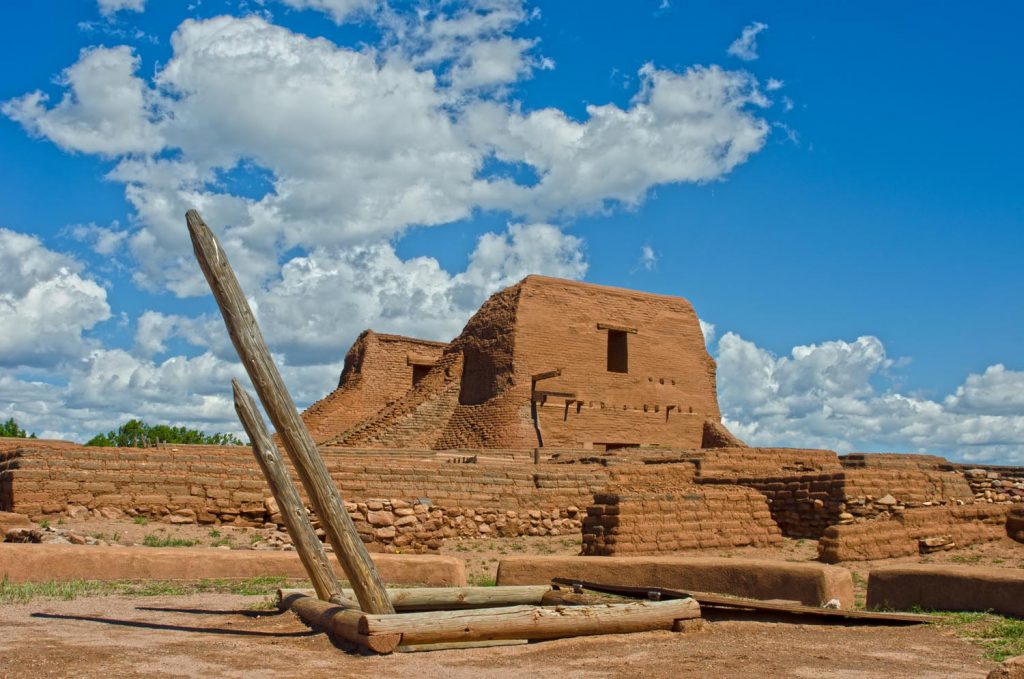
Stage Coach Stop
Another part of the national park is Kozlowski’s Stage Stop, where Martin Kozlowski ranched, served stagecoaches and repaired wagons along the Santa Fe Trail. The structure pictured below was built in 1810, more than a decade before the Trail was even envisioned. Standing there on a bright summer morning, it was easy for me to imagine stages and wagons coming up the hill, driving their teams up the last few feet, and dismounting – anticipating a brief rest before tackling Glorieta Pass and on to the home stretch (downhill) into Santa Fe.
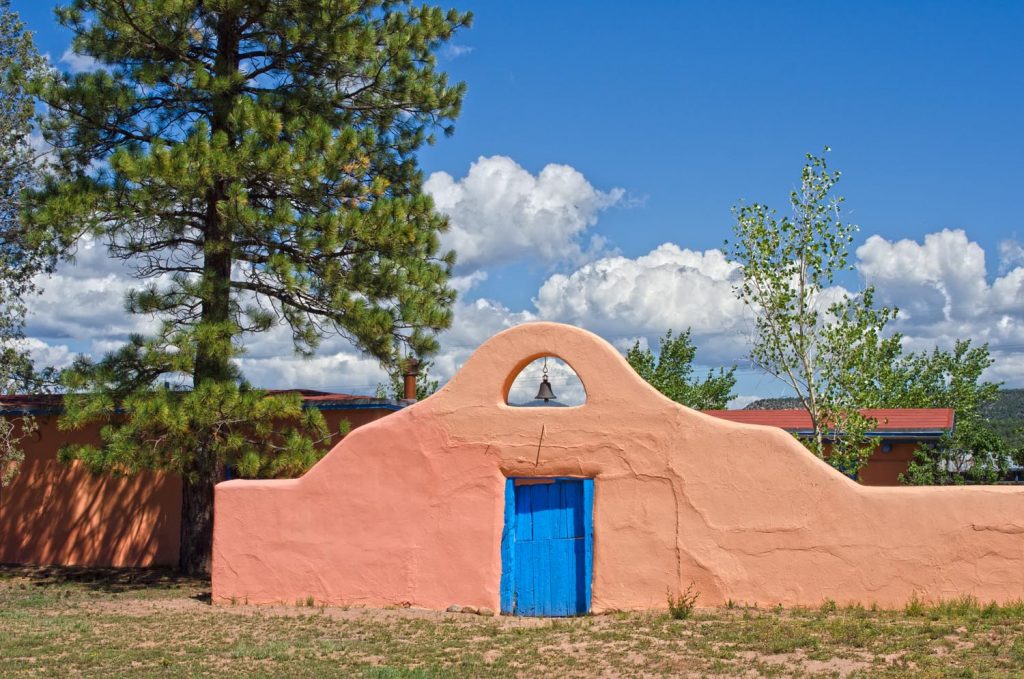
Over the years, Kozlowski’s was used as a field hospital for Civil War soldiers during the Battle of Glorieta Pass, and in the mid-1900s oilman, Buddy Fogelson purchased it, along with 13,000 acres, and ranched with his wife, actress Greer Garson. She later sold her portion of the “Forked Lightning Ranch” to the Conservation Fund, and eventually, it became part of the Pecos National Historical Park.
Fort Union
Northeast of the National Park I learned that I could follow several of the same landmarks that the Santa Fe Trail travelers used, like Starvation Peak, Wagon Mound, and Watrous Store, but what I really wanted to see were Real. Live. Wagon Wheel Ruts! I don’t know why, but seeing divots in the ground made over 150 years ago made me feel more connected to the history of the land?
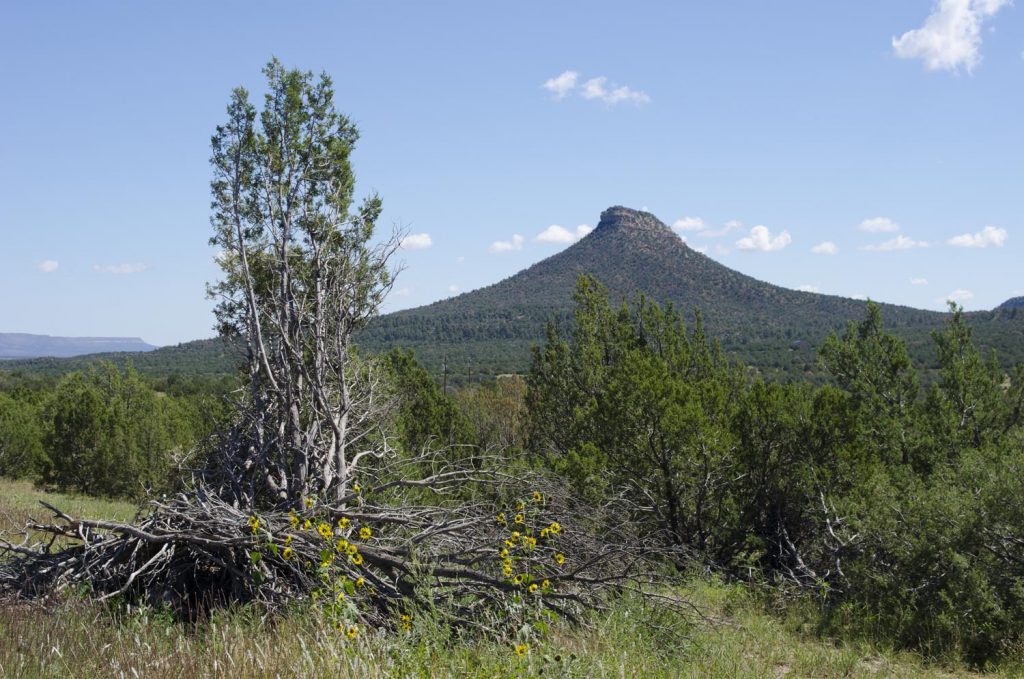
Yup! Just south of Fort Union National Monument are the best set of wagon wheel ruts I’ve ever seen. There are several ruts running parallel in this area, as I imagine wagons three and four lanes across coming down the gentle slope toward Watrous, knowing that they were within days of reaching their final destination and in a hurry to meet up with the Cimarron Cut Off portion of the Santa Fe Trail.
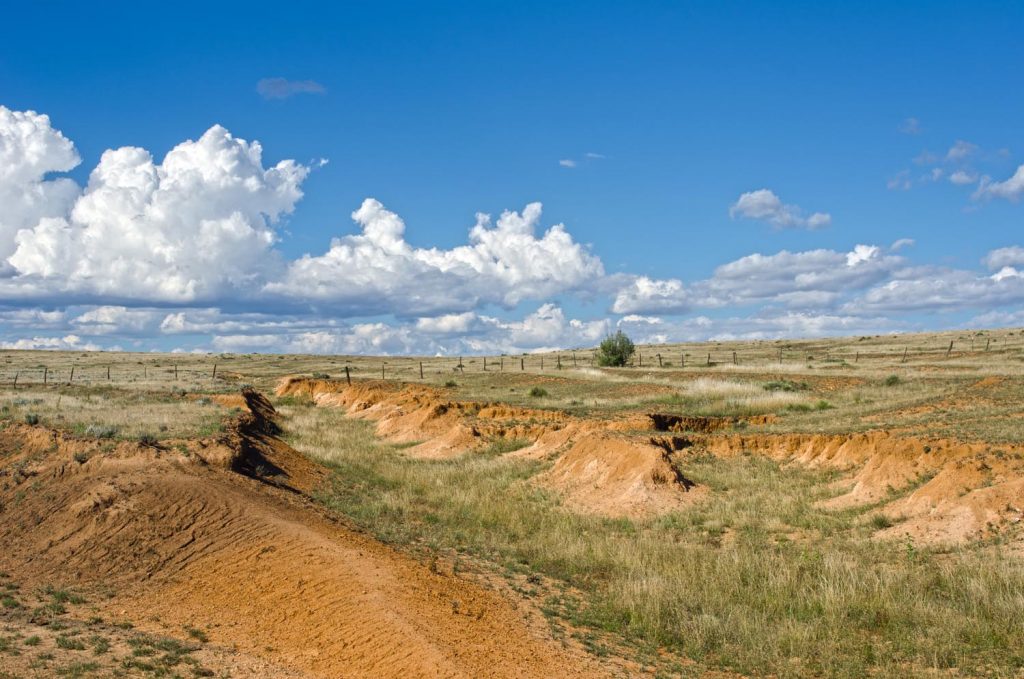
Years of weathering have only defined the ruts, rather than obliterate them. Overlooking this quiet hillside, I wondered about the people who made this trek. Unlike pilgrimages of today, they weren’t traveling toward a new place to worship or escaping the tyranny of a political beast, but the diaries left us from a few sturdy souls describes their wish to trade and establish businesses in “New” Mexico. I did not realize that this would have been impossible if the Trail had been traveled even one year before William Becknell made the first crossing to get silver coin and pay off his debts or be returned to debtor’s prison.
It seems that the Spanish were thrown out of Mexican government in August of 1821, lifting a 200-year embargo on trade with anyone the Spanish considered enemies. Mexico was glad to be rid of their arrogant Spanish government and opened trade immediately. So it was a happy accident that Becknell became the first “easterner” to travel the road in May of 1822, opening a route for entrepreneurs and settlers alike. I find it rather synchronistic that many of the travelers in today’s covered wagons (i.e. RVs) are entrepreneurs as well, working from the road they so enthusiastically traverse.
Could You Have Been a Santa Fe Trail Traveler?
I have a hard time imagining some of today’s travelers making this grueling journey of some 800 miles in anything less than air conditioned, leather detailed, push buttoned, air bagged luxury. But then I realized I am a perfect example of a 21st-century explorer, traveling some of these same paths as my ancestors, in search of new vistas. And yes, I am cruising down this trail in my trusty motorhome, oblivious to Indian attacks, thirst, and starvation.
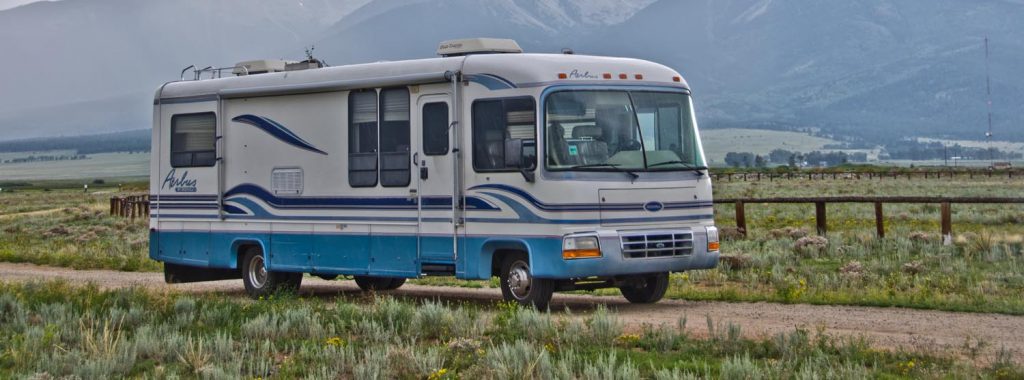
One hundred and fifty years ago, would I have been able to deal with endless miles of prairie grass, river crossings that could conceivably drown livestock, mosquitoes the size of hummingbirds, scorching heat and worry over supplies, clean water and illness along the way? Could I have made the trip in a genuine covered wagon, traversing up to 10 miles in a day? Could I even begin to conger up the smells they must have endured? What about the fear of being overtaken by Comanches? What would my feet feel like at the end of a day of walking fifteen miles in heavy leather boots? How would I handle days of constant downpours, trudging through the mud and muck? What if one of my loved ones died along the trail? Would I be able to bury them quickly, then move on along my journey without them? What drove these pioneers to travel 40 to 50 days through unfamiliar territory to an unknown destination? Could you leave the comfort of family and friends, belongings and jobs to start over in a new land? What a hardy bunch from which we hale! Now I often wonder how disappointed they must be to see how soft a people we have become, pointing and clicking from our lounge chairs, choosing to converse by electronics rather than face-to-face, and sometimes doing our exploring in front of a computer.
Travel the Trail in Comfort
Even after answering all of my hypothetical questions, I would hope that I would have been one of the first ones to volunteer for a trip on the Santa Fe Trail! Walking alongside all of the hardships, hazards, and fears they faced were the opportunities to see new landscapes, discover new cultures and experience great satisfaction in accomplishing such a monumental and groundbreaking journey. I think that is a perfect explanation for my lifestyle as a fulltime traveler today! I’m just grateful that I get to wander the back roads of this country in relative comfort, comparatively speaking! At least this 21st-century camper actually looks like it might have come down the Santa Fe Trail – you might want to check with Outdoorsy to see if one of these wagons is available for your trip on this historic route!
